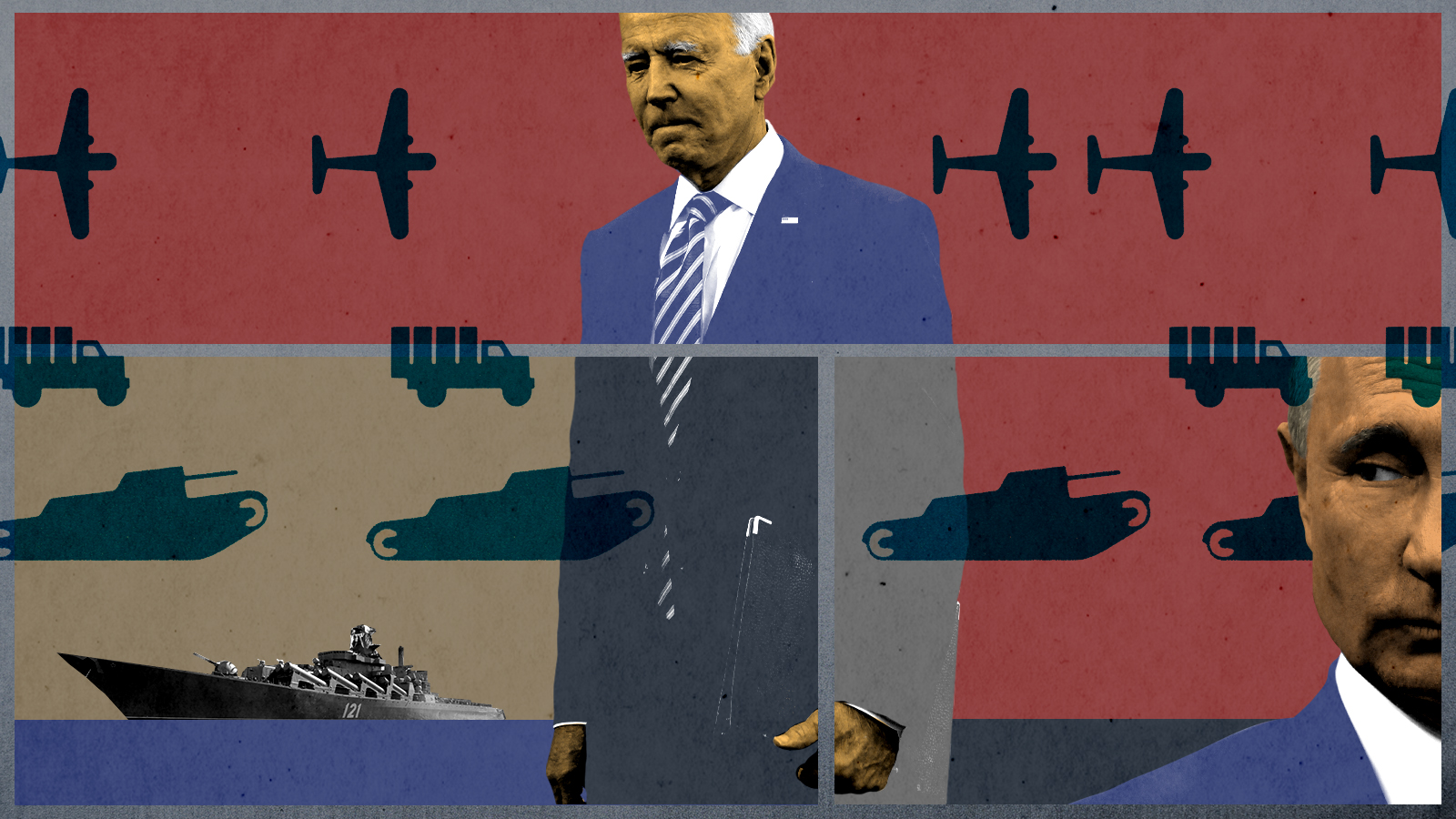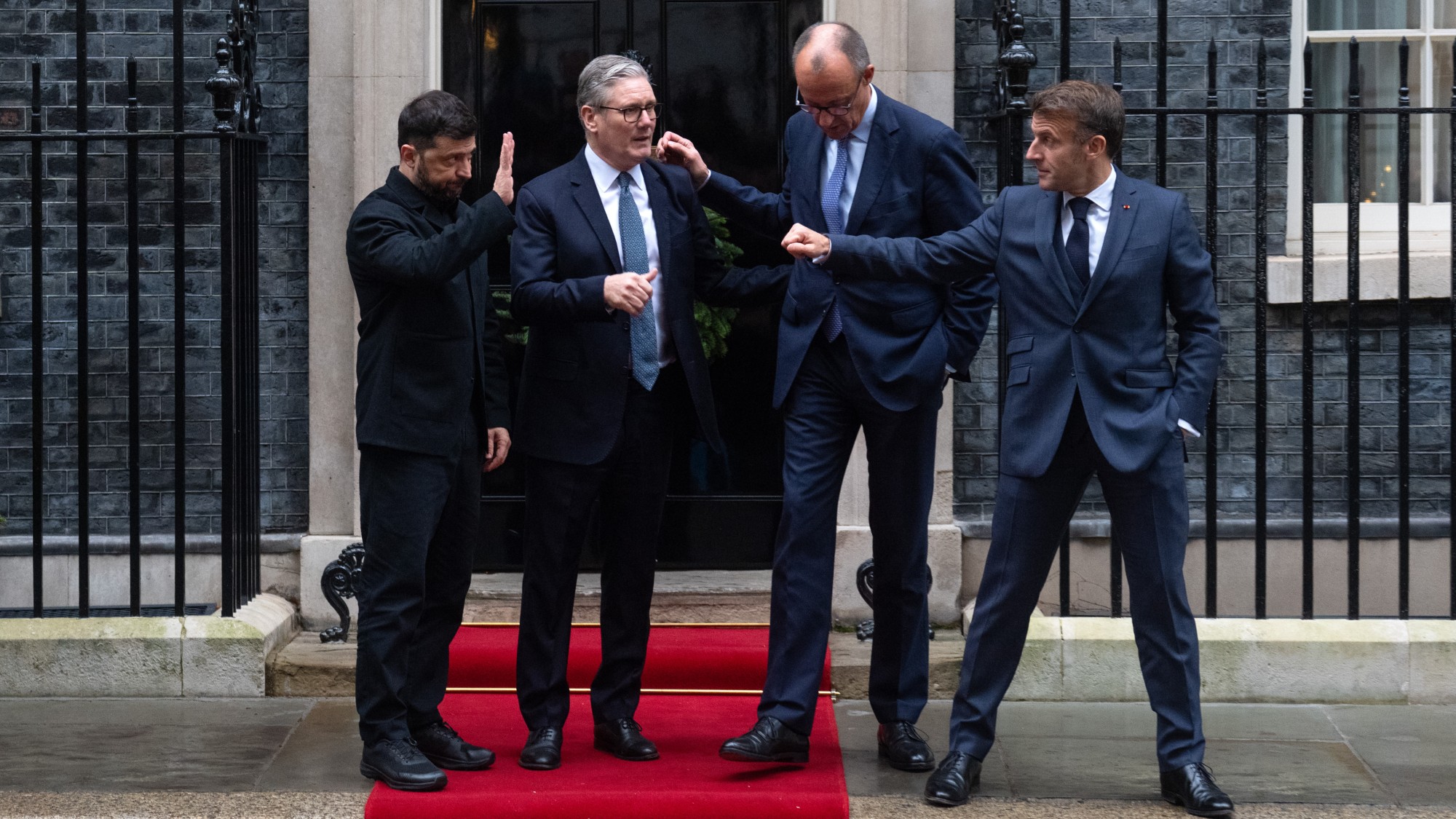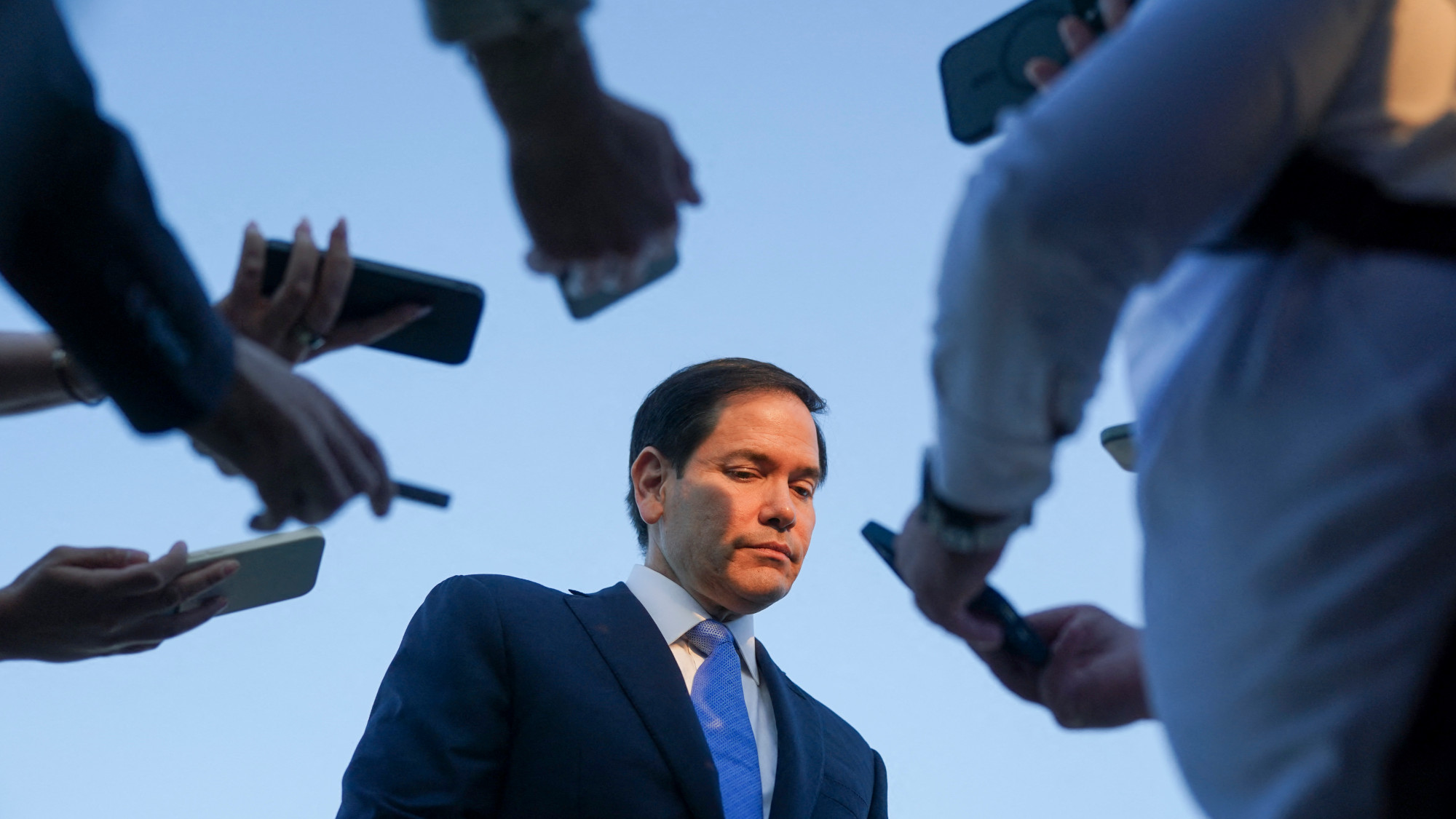Bragging about blowing up Russian generals could get us all killed
How the self-aggrandizing culture of Washington could spark World War III


A free daily email with the biggest news stories of the day – and the best features from TheWeek.com
You are now subscribed
Your newsletter sign-up was successful
When Russia invaded Ukraine at the end of February, I expected the country to be defeated quickly and easily. That Ukraine has been able to defend itself and fight back so impressively is a tribute to the fighting spirit of the country's people, to the courageous leadership of President Volodymyr Zelensky, and to the support of NATO and the United States, which have sent large quantities of aid and weapons.
As several recent press reports have made clear, the U.S. has also shared intelligence with Kyiv that has enabled the Ukrainian military to sink at least one Russian warship and assassinate several Russian generals.
I fully support the policy of providing Ukraine with intelligence to aid in its fight, including intelligence that leads to the infliction of painful defeats on Russian forces. It's also a good thing for Russia to know that we've played a significant role in enabling Ukraine to defend itself.
The Week
Escape your echo chamber. Get the facts behind the news, plus analysis from multiple perspectives.

Sign up for The Week's Free Newsletters
From our morning news briefing to a weekly Good News Newsletter, get the best of The Week delivered directly to your inbox.
From our morning news briefing to a weekly Good News Newsletter, get the best of The Week delivered directly to your inbox.
But it is a very bad thing for this information to be public knowledge. I don't blame the journalists who've reported it. If high-ranking, trustworthy government officials reveal newsworthy information to a reporter, it's usually considered acceptable to publish it. I blame the officials — especially since the Biden administration has made clear that it has not authorized the disclosures. This is a person or group of people showing off to journalists about their role in hurting Russia. That's extremely reckless and could well lead to an exceptionally dangerous escalation of the conflict that ends up with the U.S. and NATO being draw into a direct military confrontation with Russia.
The problem with these stories is, again, not what they reveal. Russia's invasion of its neighbor is the most aggressive military action undertaken in Europe since 1945, potentially placing NATO on a collision course with a powerful threat to its east. That demands a forceful response. If Ukraine were a member of NATO, we would now be at war with Russia. But because Ukraine isn't in NATO, something short of direct military confrontation is called for.
What the Biden administration has opted for is a form of proxy warfare in which Ukraine does the fighting, picks the targets, and fires the weapons, but we often supply the weapons and provide intelligence that enables Ukraine to choose targets wisely and precisely. This demonstrates American and NATO resolve while keeping us at least one step removed from directly engaging Russian forces. It's good for Russia to know that our intelligence is strong enough to place their warships and senior military officers at serious risk — and that we are willing to share that intelligence with Ukraine. Both could well prompt de-escalation, as the Russian military command and President Vladimir Putin confront the reality that it might be impossible for them to achieve anything beyond relatively minimal war aims.
But such de-escalation becomes much less likely if the American role in inflicting pain on the Russian military is public knowledge. That's because a big part of politics, even in authoritarian regimes, involves managing appearances. In order to sell a policy of de-escalation to the Russian people, Putin must be able to portray it as at least a partial victory. Otherwise, he would be risking looking weak and opening himself up to a collapse in support and/or a coup attempt that could leave him deposed from power and even dead. Humiliating Putin could also inflame patriotic rage among ordinary Russians, who could end up demanding retribution in the form of some face-saving action against NATO.
A free daily email with the biggest news stories of the day – and the best features from TheWeek.com
That's how bragging to reporters about the American role in helping Ukraine inflict maximal harm against Russian forces could well initiate an escalatory spiral that culminates in direct military confrontation between the U.S. and Russia.
This is something the Biden administration, at least at the highest level, seems to realize. But then why are some officials nonetheless blabbing to reporters? Author Yuval Levin has written about the trend in recent years of people who work in large institutions treating them as platforms for personal attention and applause rather than as structures that constrain individual behavior and channel it toward the ends the institution serves. I suspect that's what's been happening here: People on the inside who know about our covert efforts on Ukraine's behalf have decided to brag to journalists about it, figuring it will enhance their image in the ruthless status hierarchy of official Washington.
This is nothing new. It had been taking place on a small scale inside the beltway for a long time before Levin took note of its spread through the capital and American culture more broadly. But the Ukraine leaks are much worse than the norm — because of their potential to upset already very fragile relations between Washington and Moscow. It's one thing for a congressional intern to blab to a reporter about the state of budget negotiations on Capitol Hill. It's quite another for a Pentagon or NSA official to try to impress a journalist by talking about the U.S. helping to blow up the flagship of Russia's Black Sea fleet during wartime.
The Biden administration has all kinds of backchannels to communicate our role to Russia in a way that won't destabilize the situation by announcing it publicly, thereby putting Putin in a situation where he feels the need to avenge Russia's wounded honor. Whether and how to do that is the president's call. It's certainly not something someone should be deciding on his or her own without authorization.
If we aren't careful, we're going to end up stumbling into World War III — and all because some self-aggrandizing official thought it would be fun to show off to someone at The New York Times.
Damon Linker is a senior correspondent at TheWeek.com. He is also a former contributing editor at The New Republic and the author of The Theocons and The Religious Test.
-
 Political cartoons for February 20
Political cartoons for February 20Cartoons Friday’s political cartoons include just the ice, winter games, and more
-
 Sepsis ‘breakthrough’: the world’s first targeted treatment?
Sepsis ‘breakthrough’: the world’s first targeted treatment?The Explainer New drug could reverse effects of sepsis, rather than trying to treat infection with antibiotics
-
 James Van Der Beek obituary: fresh-faced Dawson’s Creek star
James Van Der Beek obituary: fresh-faced Dawson’s Creek starIn The Spotlight Van Der Beek fronted one of the most successful teen dramas of the 90s – but his Dawson fame proved a double-edged sword
-
 ‘The forces he united still shape the Democratic Party’
‘The forces he united still shape the Democratic Party’Instant Opinion Opinion, comment and editorials of the day
-
 The billionaires’ wealth tax: a catastrophe for California?
The billionaires’ wealth tax: a catastrophe for California?Talking Point Peter Thiel and Larry Page preparing to change state residency
-
 Trump considers giving Ukraine a security guarantee
Trump considers giving Ukraine a security guaranteeTalking Points Zelenskyy says it is a requirement for peace. Will Putin go along?
-
 Vance’s ‘next move will reveal whether the conservative movement can move past Trump’
Vance’s ‘next move will reveal whether the conservative movement can move past Trump’Instant Opinion Opinion, comment and editorials of the day
-
 Bari Weiss’ ‘60 Minutes’ scandal is about more than one report
Bari Weiss’ ‘60 Minutes’ scandal is about more than one reportIN THE SPOTLIGHT By blocking an approved segment on a controversial prison holding US deportees in El Salvador, the editor-in-chief of CBS News has become the main story
-
 Will there be peace before Christmas in Ukraine?
Will there be peace before Christmas in Ukraine?Today's Big Question Discussions over the weekend could see a unified set of proposals from EU, UK and US to present to Moscow
-
 Ukraine and Rubio rewrite Russia’s peace plan
Ukraine and Rubio rewrite Russia’s peace planFeature The only explanation for this confusing series of events is that ‘rival factions’ within the White House fought over the peace plan ‘and made a mess of it’
-
 Has Zohran Mamdani shown the Democrats how to win again?
Has Zohran Mamdani shown the Democrats how to win again?Today’s Big Question New York City mayoral election touted as victory for left-wing populists but moderate centrist wins elsewhere present more complex path for Democratic Party
